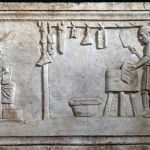In ancient Rome, the concepts of otium (rest) and negotium (work) formed the foundation of social and personal life, especially among the elite. It was otium post negotium – “rest after work” – that symbolized the balance that a person should maintain to live harmoniously. Otium was crucial in shaping the Romans’ culture, philosophy and everyday life.
Romans understood negotium as all responsibilities related to property management, public affairs and professional life. For men of the Senate elite, negotium could mean conducting political campaigns, administering property, or participating in wars. The sphere of professional and public activity was important but had its limits – after exhausting physical and mental resources, one had to find time for regeneration.
In opposition to negotium, otium was a time free from duties, dedicated to rest, study and reflection. But it was more than just passive laziness. For the Roman aristocracy, otium was a space for spiritual, creative and intellectual development. During otium, the Romans devoted themselves to philosophy, literature, discussions with friends and the cultivation of the arts. People sought peace and space for contemplation in countryside residences, called villae, where great literary works were often written, such as the writings of Cicero.
An important element of otium was being surrounded by nature – villae were often located far from cities, among vineyards and gardens. Otium taught the Romans harmony with nature and themselves.
Not everyone could afford the luxury of otium. It was reserved mainly for aristocrats who had already achieved their political and financial goals. Philosophers such as Seneca the Younger praised otium as a way of self-development and living in harmony with nature, and at the same time criticized those who were unable to find a balance between work and rest. Cicero saw otium as a time for reflection on public and private life, which made rest extremely valuable for a politician.





